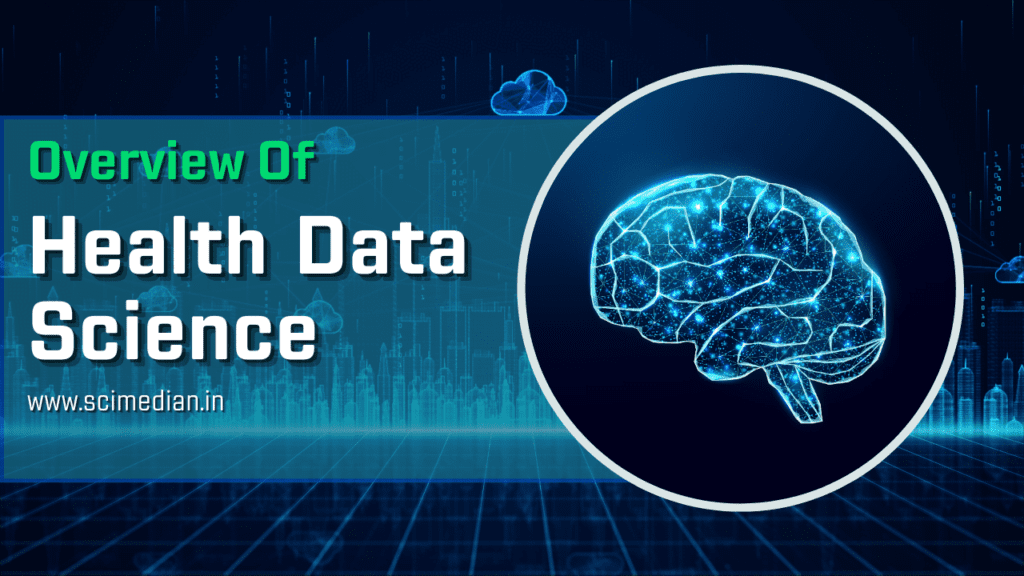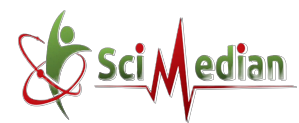If you want to attend a video on the Overview of health Data science you can watch it here.
In this Digitally driven world, The healthcare (Medical) world is facing the fastest changes and advancement because of data and insights. There are some specific people who are only working on medical data continuously and trying to get insights from the health records, so this kind of requirement invented a new field called Health data science.
This field is a combination of healthcare expertise, statistical analysis, and computer science to extract valuable insights from large amounts of healthcare data. In this blog, we will explore the interest field of health data science, it will impact on the healthcare industry and Its advancement.
Introduction to Health Data Science.
Data science in Health encompasses the collection, analysis, interpretation, and application of large volumes of health-related data to gain valuable insights and inform decision-making processes in the healthcare sector. It involves the integration of various data sources, such as electronic health records (EHRs), medical imaging, wearable devices, genetic data, and social determinants of health.
By harnessing the power of data science techniques, healthcare professionals can make data-driven decisions to improve patient care and outcomes. It empowers healthcare professionals to make data-driven decisions, enables early disease detection, personalizes treatment plans, and contributes to the development of new therapies and interventions. In essence, Medical data science harnesses the power of data to transform the way we understand, manage, and enhance healthcare systems and patient care.
Applications and Uses of Health Data Science.
Data science in Health finds extensive applications across the healthcare spectrum. It is employed for disease diagnosis and prediction, tailoring personalized treatment plans, streamlining drug discovery, and enhancing the efficiency of clinical trials. Furthermore, Data science in medical fuels telemedicine and remote patient monitoring, revolutionizing healthcare accessibility. It plays a pivotal role in epidemiology and public health by tracking disease outbreaks and informing policy decisions. Additionally, data science in healthcare contributes to efficient resource allocation in healthcare systems and drives advancements in genomic medicine.
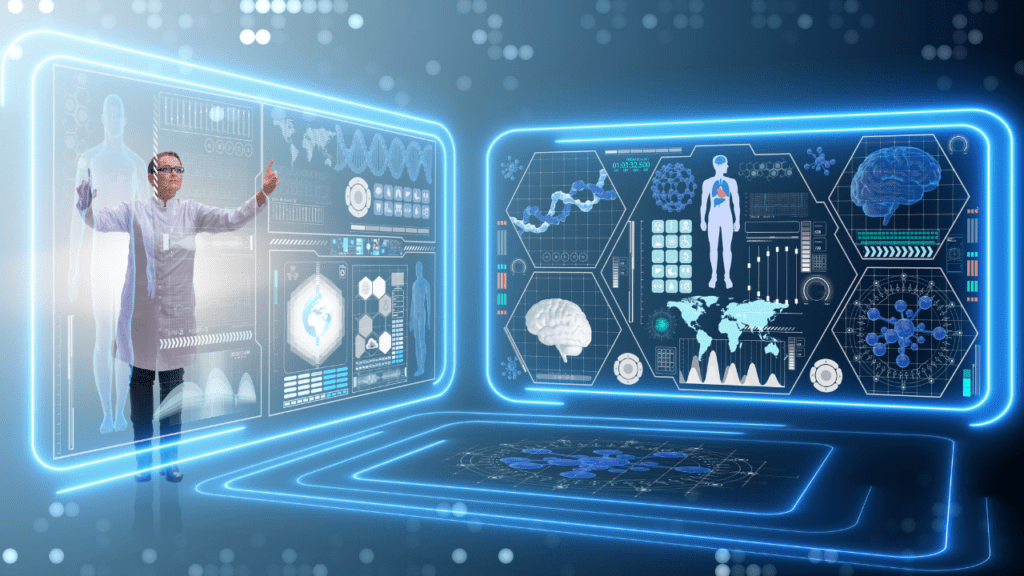
Patient engagement and education are also facilitated by data-driven tools, empowering individuals to take control of their health. In essence, the applications of Data Science in medical are diverse, spanning from improving patient care to shaping the future of healthcare innovation.
Patient engagement and education are also facilitated by data-driven tools, empowering individuals to take control of their health. In essence, the applications of healthcare data science are diverse, spanning from improving patient care to shaping the future of healthcare innovation.
Healthcare data science enables the monitoring and analysis of population health trends, disease outbreaks, and risk factors. This information can help public health officials implement targeted interventions, prevent the spread of diseases, and promote health and wellness.
Through the analysis of large-scale genomic and clinical data, healthcare data science facilitates the identification of potential drug targets and the development of personalized medicine. This can lead to more effective therapies and improved patient outcomes.
Healthcare data science plays a crucial role in streamlining the insurance claims process, detecting fraud, and optimizing reimbursement models. It ensures accurate billing and efficient utilization of resources within the healthcare system.
Data science is revolutionizing the field of medical diagnosis by harnessing the power of data to enhance accuracy and efficiency. Through sophisticated algorithms and machine learning techniques, data scientists are enabling healthcare professionals to make more informed decisions when diagnosing illnesses. By analyzing vast datasets of patient information, including symptoms, genetic markers, and historical data, data science is helping to uncover hidden patterns and correlations that might otherwise go unnoticed. This not only speeds up the diagnosis process but also improves the overall quality of patient care, leading to more precise and personalized treatment plans. In an era where medical advancements are critical, data science is emerging as a beacon of hope, pushing the boundaries of what’s possible in the realm of healthcare diagnostics.
Data analysis plays a pivotal role in advancing medical image analysis, revolutionizing the way healthcare professionals diagnose and treat patients.
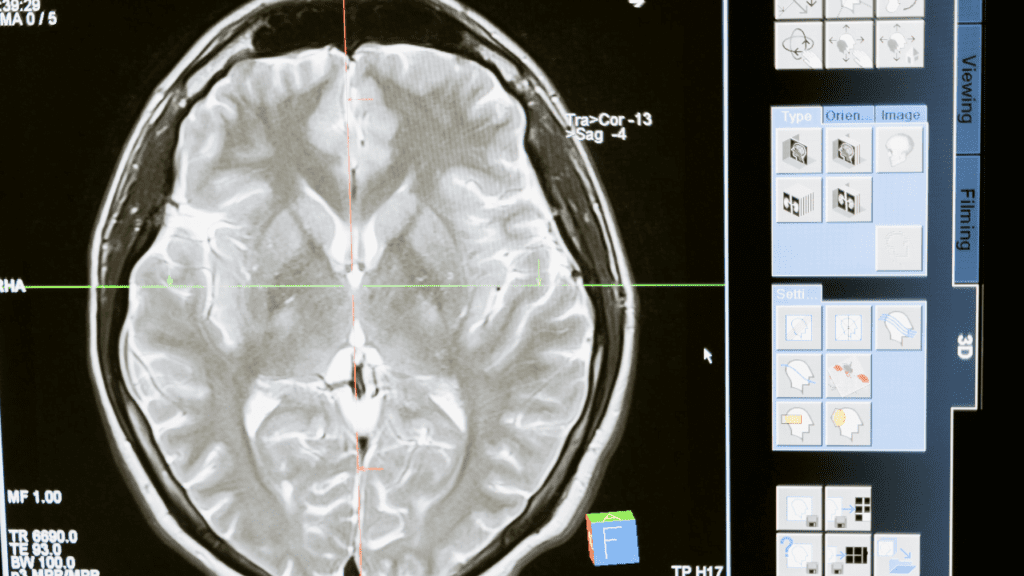
By leveraging cutting-edge techniques in computer vision and machine learning, data analysis enables the swift and accurate interpretation of complex medical images, such as X-rays, MRIs, and CT scans. Through meticulous pixel-level analysis and pattern recognition, it helps identify subtle anomalies, tumors, or irregularities that might escape the human eye. Moreover, it streamlines the diagnostic process by automating repetitive tasks, allowing radiologists and clinicians to focus on critical decision-making. In essence, data analysis in medical image analysis not only enhances the accuracy of diagnoses but also expedites treatment planning, ultimately saving lives and improving the overall quality of patient care. It represents a remarkable synergy between technology and healthcare, paving the way for a more precise and efficient medical landscape.
Data science in Healthcare is instrumental in creating virtual healthcare assistants. These virtual assistants, driven by data analytics and AI, offer personalized health advice, medication reminders, and scheduling services. They use patient data, wearable device information, and medical history to provide timely and tailored support. By improving patient engagement and streamlining healthcare interactions, health data science is paving the way for more accessible and efficient virtual healthcare assistants.
Telemedicine, empowered by data science, is transforming the way healthcare is delivered. Remote patient monitoring, a critical component of telehealth, allows healthcare providers to keep a watchful eye on patients’ vital signs and health metrics from a distance. This technology, coupled with data analytics, provides real-time insights into patients’ conditions, allowing for early intervention and personalized care adjustments. As telehealth continues to advance, it is becoming a lifeline for those in remote or underserved areas, enhancing healthcare accessibility for individuals who may have limited access to traditional healthcare facilities. Telemedicine, with its remarkable potential to bridge geographical gaps and improve patient outcomes, stands as a testament to the synergy between technology and healthcare in the modern era.
Collecting and Storing Health Data
To unleash the power of health data science, robust systems for data collection and storage are essential. Healthcare organizations must establish secure and standardized methods for collecting patient data, ensuring patient privacy and data confidentiality. Electronic health records (EHRs) are widely used to capture and store patient information, enabling seamless data sharing between healthcare providers. Additionally, advancements in technologies such as cloud computing and blockchain offer innovative solutions for secure data storage and interoperability.
Data Analytics in Healthcare
Data analytics is a fundamental component of health data science. It involves extracting meaningful insights from vast amounts of structured and unstructured healthcare data.
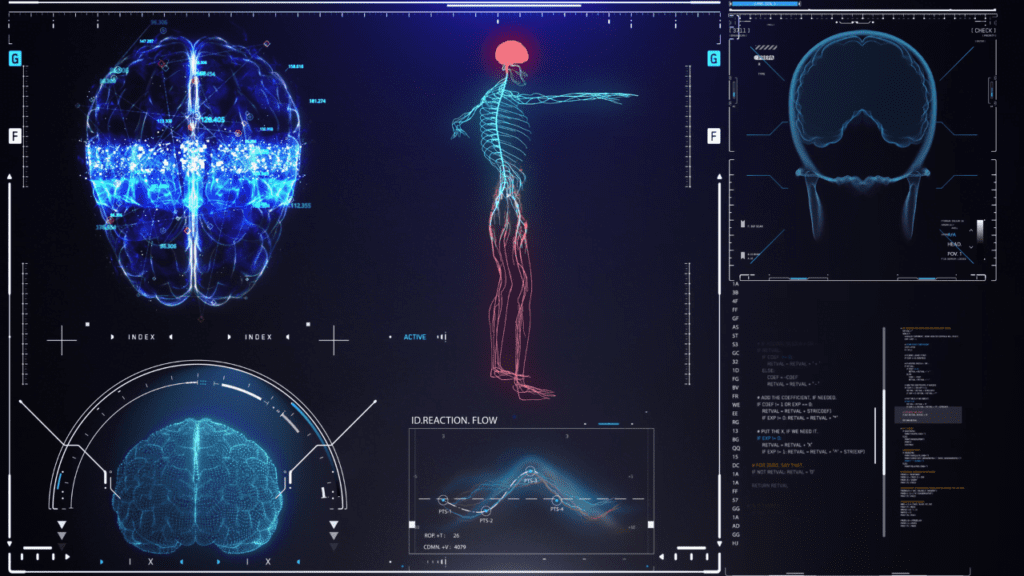
First of all Health data analysts or organizations collect data from data sources and after Getting raw health data they do Descriptive analytics providing a retrospective view of healthcare data, and allowing stakeholders to understand patterns and trends. Diagnostic analytics helps identify the causes of specific health outcomes or events. Predictive analytics employs statistical models and machine learning algorithms to forecast future health outcomes and inform proactive interventions. Prescriptive analytics goes a step further, recommending specific actions based on the insights gained.
Predictive Modelling and Machine Learning
Predictive modeling and machine learning algorithms are fundamental components of health data science, driving advancements in healthcare. These powerful tools empower the creation of precise models capable of foreseeing disease progression, anticipating treatment effectiveness, and forecasting patient outcomes. By learning from extensive historical data, machine learning algorithms unveil hidden patterns that may elude human perception.
This newfound knowledge aids healthcare providers in making well-informed decisions, ranging from the prediction of readmissions to the identification of high-risk patients and the optimization of treatment strategies. In the ever-evolving landscape of healthcare, predictive modeling, and machine learning are becoming indispensable instruments for delivering more accurate and patient-centered care.
Ethical Considerations in Health Data Science
As Data Science in Medical continues to advance, ethical considerations become increasingly important. It is crucial to ensure patient privacy, informed consent, and secure data handling practices. Balancing the benefits of data-driven insights with the protection of individual rights and autonomy is a critical challenge. Healthcare organizations must establish robust governance frameworks and adhere to regulatory guidelines to maintain trust and transparency in health data science initiatives.
Challenges and Future in Health Data Science
- Data Privacy and Security: Protecting sensitive patient data is paramount. Healthcare data science must navigate stringent privacy regulations like HIPAA in the United States and GDPR in Europe, while also guarding against the rising threat of cyberattacks.
- Data Quality and Integration: Health data is often fragmented across various sources and can be riddled with errors. Integrating and cleaning this data to ensure accuracy is a substantial challenge.
- Limited Access to Data: Researchers and data scientists often face difficulties in accessing comprehensive and diverse datasets due to data silos, proprietary systems, or concerns about data sharing.
- Data Volume and Processing: The sheer volume of healthcare data generated daily can overwhelm existing infrastructure and computational capabilities. Processing and analyzing this big data efficiently remain significant challenges.
- Regulatory Compliance: Staying compliant with evolving healthcare regulations and standards requires continuous effort and adaptation.
Overcoming these challenges requires collaboration among stakeholders, including healthcare providers, policymakers, researchers, and technology experts.
The future of healthcare data science in the 21st century is promising. Advancements in artificial intelligence, machine learning, and natural language processing will enhance the ability to extract insights from complex datasets. Additionally, the integration of data from wearable devices and the Internet of Things (IoT) will provide even richer and more comprehensive datasets for analysis. These advancements will continue to drive innovation in healthcare and empower healthcare professionals with the tools they need to make data-driven decisions. Public health officials to implement timely interventions and preventive measures, safeguarding communities from the spread of infectious diseases.
In today’s digitally driven world, the healthcare industry is undergoing a profound transformation, thanks to advancements in technology and the wealth of available data. At the forefront of this revolution is health data science, a multidisciplinary field that melds healthcare expertise, statistical analysis, and computer science to extract invaluable insights from vast troves of health-related data.
As we’ve explored in this blog, the applications of health data science are both diverse and transformative, spanning disease diagnosis, personalized treatments, drug discovery, and even the optimization of healthcare resource allocation. Yet, as we delve deeper into the realm of health data science, we must also navigate the complex landscape of data privacy, ethics, and the challenges that lie ahead.
Looking forward, the future of healthcare data science holds immense promise, driven by artificial intelligence, machine learning, and the integration of data from wearables and IoT devices. It’s a future where healthcare will be more data-driven, patient-centric, and innovative than ever before, ultimately leading to improved patient care, enhanced research capabilities, and a healthier world for all.

